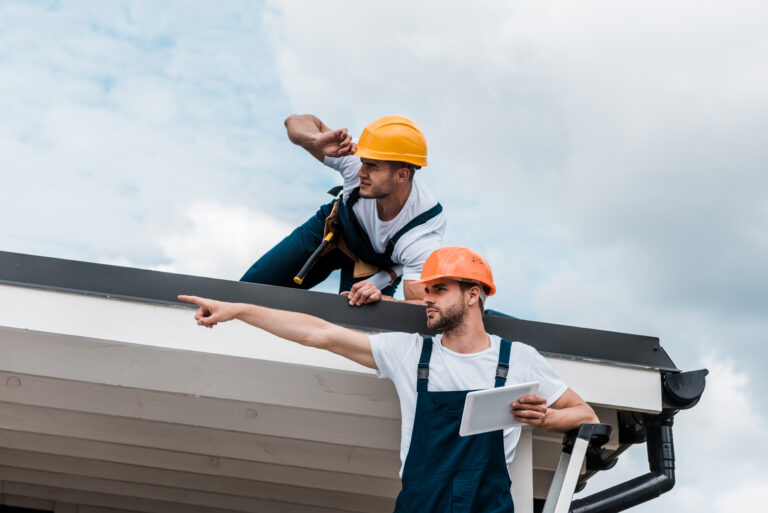
As a commercial building owner or facility manager, the integrity of your roof is of utmost importance in safeguarding your establishment’s assets and ensuring optimal working conditions. A critical component of maintaining a durable and reliable roofing system is the regular performance of comprehensive commercial roof inspections. These assessments allow for early detection and resolution of potential issues, prolonging the life of your roof while minimizing the risks associated with costly damage or premature replacement.
Today, Preferred Home Services will explore the critical elements of an effective commercial roof inspection, touching upon the primary areas to be assessed, common problem indicators, and appropriate intervals for these inspections to be conducted. We will also showcase the benefits of partnering with skilled roofing professionals who are well-versed in commercial roofing systems, safety protocols, and industry best practices.
Key Components of an Effective Commercial Roof Inspection
1. Examination of Roofing Membrane and Surface Material
The primary focus of a commercial roof inspection is assessing the condition of the roofing membrane or surface material. This evaluation includes checking for signs of aging, wear, or damage, such as punctures, cracks, blisters, or delamination. Identifying and addressing these issues at an early stage helps maintain the integrity of your roof and prevents costly damage or replacement.
2. Inspection of Flashings, Joints, and Penetrations
An integral aspect of a comprehensive roof inspection is examining the flashings, joints, and penetrations. These areas are particularly susceptible to damage or leakage due to their exposure to the elements and potential for movement. Proper maintenance of these critical elements is essential in preventing water infiltration and safeguarding the structural integrity of your commercial roofing system.
3. Assessment of Roof Drains and Gutter Systems
Ensuring the proper functioning of your roof drains and gutter systems is crucial for effective water management and preventing damage to your building. A thorough commercial roof inspection should evaluate the condition of these components, identify debris accumulation, and assess the overall performance of your drainage system.
4. Evaluation of Roof Accessories and Equipment
Your commercial roof likely features various accessories and equipment, such as HVAC units, skylights, or solar panels. These installations should be inspected for signs of damage or leaks and to ensure secure attachment to the roof surface.
The Importance of Regular Commercial Roof Inspections
1. Early Detection of Potential Issues
Routine commercial roof inspections allow for early detection of potential problems, such as developing leaks, deteriorating flashings, or weakened joints. By identifying and addressing these issues at an early stage, costly repairs or premature replacement can be avoided.
2. Prolonging Roof Lifespan
Regular inspections contribute significantly to extending the lifespan of your commercial roof, ensuring optimal performance and longevity. A well-maintained roof is more likely to withstand the challenges presented by harsh weather conditions and provide lasting protection for your building and its assets.
3. Improved Energy Efficiency
A commercial roof inspection can help identify areas of energy inefficiency, such as inadequately insulated sections or damaged roofing materials. By addressing these issues, the overall energy efficiency of your building can be enhanced, resulting in reduced energy consumption and costs.
4. Compliance with Warranty Requirements
Many commercial roofing materials and installations come with manufacturer warranties that require regular inspections and maintenance. Adhering to these requirements not only ensures the ongoing validity of your warranty but also helps maintain the overall condition of your roof.
The Value of Partnering with Skilled Roofing Professionals
1. Industry Expertise and Safety Protocols
Commercial roof inspections require specialized knowledge of various roofing systems as well as adherence to strict safety protocols. Partnering with an experienced roofing professional ensures that your inspections are conducted accurately, thoroughly, and safely.
2. Customized Inspection and Maintenance Plans
A skilled roofing professional can develop a tailored inspection and maintenance plan for your commercial roof, considering factors such as the type of roofing system, environmental conditions, and your specific business needs. This personalized approach ensures that your roof receives the attention and care it requires for peak performance and longevity.
3. Quality Inspections and Repairs
Experienced roofing professionals possess the knowledge and expertise needed to identify and address potential issues with your commercial roof. By trusting these experts with your roof inspections, you can ensure that any necessary repairs and maintenance are performed to the highest standards, preserving the structural integrity and performance of your roofing system.
Conclusion
Commercial roof inspections are essential for maintaining the integrity, functionality, and lifespan of your business’s roofing system. By understanding the critical components of an effective inspection and committing to a regular inspection schedule, you can proactively address potential issues, enhance energy efficiency, and ensure compliance with warranty requirements. Additionally, partnering with skilled roofing professionals provides access to industry expertise, customized inspection and maintenance plans, and high-quality inspection and repair services.
At Preferred Home Services, we pride ourselves on offering exceptional commercial roof inspection and maintenance services tailored to your unique needs. Contact us today to learn more about how our skilled team of roofing professionals can help you protect and enhance your building’s most crucial protective barrier.

